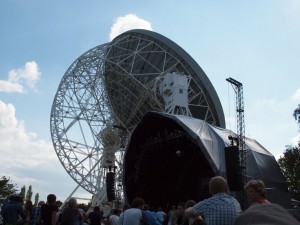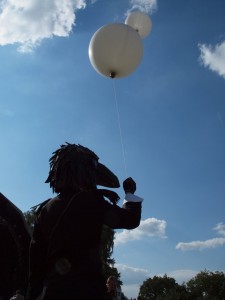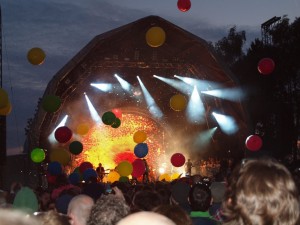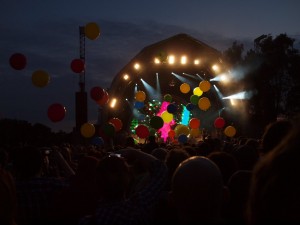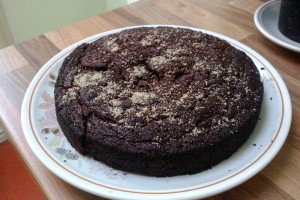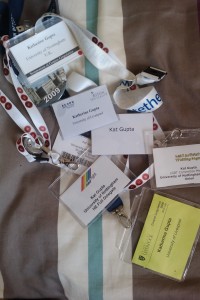Yesterday I went to my second Pride. It was better than last year for a couple of reasons – we started marching from Market Square to Forest Fields so got plenty of visibility (as opposed to the extended tour of Nottingham’s back streets of last year) and this time I was at a stall, watched the acoustic stage, had the good sense to leave before I got irritable and wasn’t subjected to the Cheeky Girls. I was marching with Recreation, the local group I help out with, and that made it a good experience. One of the group members remarked that he felt he belonged, and it was good to meet new people who’d been looking for a group like ours. It’s why I call my involvement in this group activism – I might not be on the streets with a loudhailer, but for me, making this space possible, acknowledging the diversity of people’s identities, and offering solace and support is activism. It’s telling people they are not alone and that in itself is a powerful thing.
Marching through the city centre actually felt meaningful – not quite confrontational, but both unexpected enough and big enough to take people by surprise. One of the reasons I march is because visibility is important. It’s a reminder to other people that LGBTQ people exist – that we have families and work and are members of society too.
However, as last year, I had problems with Pride. Bisexual invisibility is a pervasive thing – bifurious is on the bi banner for a reason. This year, one entertainer invited the gays to cheer, the lesbians to cheer and the straights to cheer – completely failing to acknowledge bisexuals, pansexuals and queers, among others. It’s a reminder that often, it’s not so much LGBT as LGBt and that this comes from within the so-called gay community.
There’s also a danger that Pride gets too heavily involved with corporate sponsors. This year’s was sponsored by the owners and operators of Kingsnorth Power Station. At least Nottingham Pride is free – others, like Manchester and Brighton already, or have plans to, charge an entry fee. Pride Is A Protest campaign “against profiteering, exploitation and commercialisation of our Queer and LGBT community events and festivals”. It’s been criticised for being a protest about the lack of protest but at the same time, they warn of where corporate sponsorship can end up.
I have somewhat mixed feelings about this whole Pride business. Rather than being unambiguously celebratory, for me it highlights issues that still need to be addressed, particularly problematic discourses within the gay community and the role of corporate sponsorship in community events; however, simultaneously, it offers a form of challenging visibility and the chance to (for lack of a better word) connect with others.

